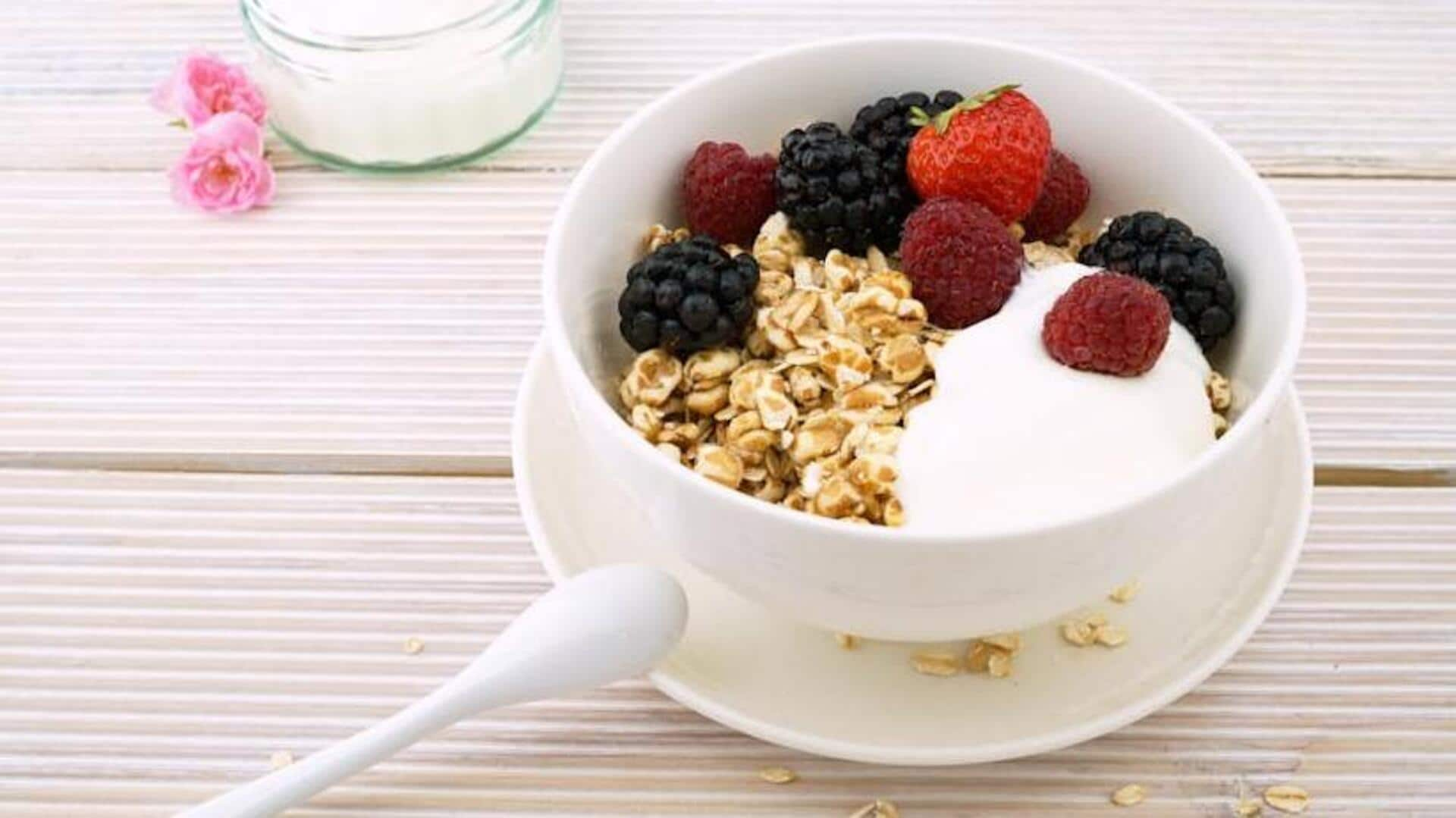
Unlocking the power of fermented foods
What's the story
Fermented foods have been a cornerstone in culinary traditions around the world, offering not just unique flavors but also numerous health benefits.
These foods undergo a process where natural bacteria feed on sugar and starch, creating lactic acid.
This transformation not only preserves these foods but also creates beneficial enzymes, B vitamins, omega-three fatty acids, and various strains of probiotics.
Ingredient 1
The magic of yogurt
Yogurt is one of the most accessible sources of probiotics, which can enhance digestive health and boost immunity.
Opt for plain, unsweetened varieties to avoid added sugars.
Yogurt can be enjoyed on its own or used as a base for smoothies.
Incorporating it into your daily diet can help maintain a healthy balance of gut bacteria essential for overall well-being.
Beverage 1
Kombucha: A fizzy delight
Kombucha is a fermented tea that has gained popularity for its tangy taste and health benefits.
It's rich in probiotics and antioxidants that support gut health and can aid in detoxification.
While store-bought options are convenient, making kombucha at home allows you to control the sugar content and experiment with different flavors using fruits and herbs.
Dish 1
Sauerkraut: More than just a condiment
Sauerkraut is made from finely cut cabbage fermented by lactic acid bacteria.
It's rich in vitamins C and K, fibers, and antioxidants.
Adding sauerkraut to sandwiches or salads not only introduces a crunchy texture and tangy flavor but also boosts the nutritional profile of your meals.
This makes it an excellent choice for enhancing diet quality with beneficial nutrients.
Ingredient 2
The versatility of miso
Miso, a Japanese seasoning, is made by fermenting soybeans with salt and koji, a fungus.
It enhances dishes like soups and dressings with its umami flavor.
Miso is rich in zinc, manganese and copper, and packed with protein and fiber. These nutrients support digestive health.
Introducing miso into your diet can improve gut health and add delicious flavors to your meals.